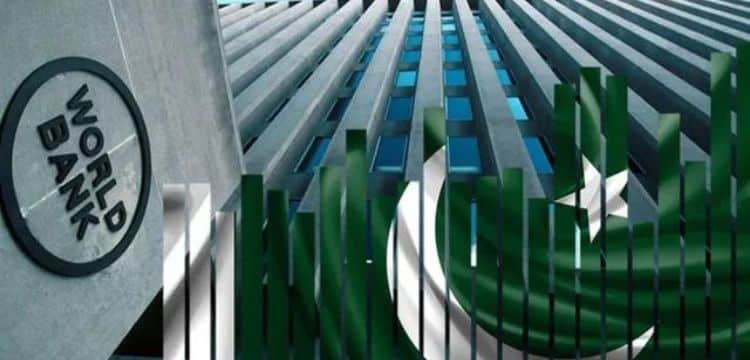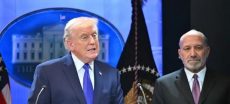[vc_row][vc_column][vc_column_text dp_text_size=”size-4″]World Bank Country Director, Najy Benhassine, has highlighted that Pakistan’s current economic model is ineffective, trailing behind its counterparts. He notes a concerning reversal in progress on poverty reduction, with the benefits of growth disproportionately favoring a select elite.
Mr. Benhassine, in a Policy Vision article featured in the latest UNDP publication, stresses the urgent need for policy changes to rectify development issues and address climate change challenges.
Pakistan is particularly vulnerable to climate change, facing potentially devastating impacts from climate shocks and natural disasters.
The article underscores the necessity of addressing policy failures and distortions, especially in the agri-food and energy sectors. In agriculture, there is a call for reforms to dismantle subsidies and price restrictions that confine smallholder farmers to a low-value farming system.
Also Read: Is Pakistani Economy Still Facing Challenges?
In the energy sector, the focus is on consolidating progress toward financial sustainability, enhancing the efficiency of distribution companies through increased private participation, and tackling high electricity generation costs through greater use of renewable energy sources.
While acknowledging the well-established need for these policy shifts, the article recognizes that reform efforts often face opposition.
The key question is whether those with influence will seize the opportunity presented by the current crisis to implement necessary changes. The World Bank country director emphasizes the importance of unity in working towards a brighter, more prosperous, and sustainable future for Pakistan.
Further recommendations include drastic improvements in fiscal management, addressing unsustainable debt servicing costs and domestic revenue mobilization, and reallocating resources for human development, infrastructure, economic challenges, and climate adaptation.
The article advocates for cutting regressive subsidies, reducing losses from inefficient state-owned enterprises, and increasing revenue from the affluent through progressive taxation.
Also Read: 50% Pakistani Considers Nawaz Sharif The Hope For Country’s Economy
To achieve improved living standards, stronger growth, and a more dynamic and open economy, the article suggests reducing protectionism in certain sectors and correcting distortions in taxation that favor non-tradables.
The overall business environment, especially for smaller firms, needs enhancement by cutting bureaucratic red tape. Resolving structural macroeconomic imbalances, particularly on the fiscal side, is deemed essential for a stable economic environment that attracts investors.
Yong Ye, the Country Director of the Asian Development Bank in Pakistan, echoes the sentiment, emphasizing the importance of consistent country policies and an uninterrupted reform momentum to create a conducive environment for addressing complex economic challenges. The Asian Development Bank remains committed to partnering in Pakistan’s transformation, promoting prosperity, inclusiveness, resilience, and sustainability under the ADB Strategy 2030.[/vc_column_text][/vc_column][/vc_row]











